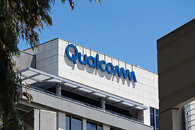- Joined
- Aug 19, 2017
- Messages
- 2,978 (1.06/day)
A Delaware jury has delivered a mixed verdict in the high-stakes licensing dispute between Qualcomm and Arm, with Qualcomm securing a significant but incomplete victory. The jury unanimously found that Qualcomm's use of Oryon cores in its Snapdragon X processors for client PCs did not violate its licensing agreements with Arm. The case centered on Qualcomm's $1.4 billion acquisition of Nuvia in 2021 and subsequent use of Nuvia's processor designs. Arm had alleged that Nuvia's licensing terms couldn't transfer automatically to Qualcomm and demanded renegotiation of the agreements. When Qualcomm proceeded with development, Arm insisted the designs be destroyed. During the trial, Gerard Williams III, the lead developer of Oryon cores and former Apple engineer, testified that the final design contained less than 1% of Arm technology.
This testimony supported Qualcomm's position that its existing architecture license covered products designed by its subsidiaries. While Qualcomm celebrated the verdict allowing continued development of its Snapdragon X processors, the jury deadlocked whether Nuvia violated its original agreement with Arm, specifically about permitting server processor development. This impasse has prompted Arm to announce its intention to seek a retrial on this unresolved count. "We are disappointed that the jury was unable to reach consensus across the claims," Arm stated, wanting to protect its intellectual property and ecosystem. Meanwhile, Qualcomm expressed satisfaction with the decision, stating the verdict "vindicated Qualcomm's right to innovate." The stakes remain high for both companies. Qualcomm relies on its Oryon cores to compete in the PC market, where it currently holds a 0.8% share of Q3 2024 shipments, while Arm derives approximately $300 million annually from Qualcomm, representing 10% of its revenue.

View at TechPowerUp Main Site | Source
This testimony supported Qualcomm's position that its existing architecture license covered products designed by its subsidiaries. While Qualcomm celebrated the verdict allowing continued development of its Snapdragon X processors, the jury deadlocked whether Nuvia violated its original agreement with Arm, specifically about permitting server processor development. This impasse has prompted Arm to announce its intention to seek a retrial on this unresolved count. "We are disappointed that the jury was unable to reach consensus across the claims," Arm stated, wanting to protect its intellectual property and ecosystem. Meanwhile, Qualcomm expressed satisfaction with the decision, stating the verdict "vindicated Qualcomm's right to innovate." The stakes remain high for both companies. Qualcomm relies on its Oryon cores to compete in the PC market, where it currently holds a 0.8% share of Q3 2024 shipments, while Arm derives approximately $300 million annually from Qualcomm, representing 10% of its revenue.

View at TechPowerUp Main Site | Source





